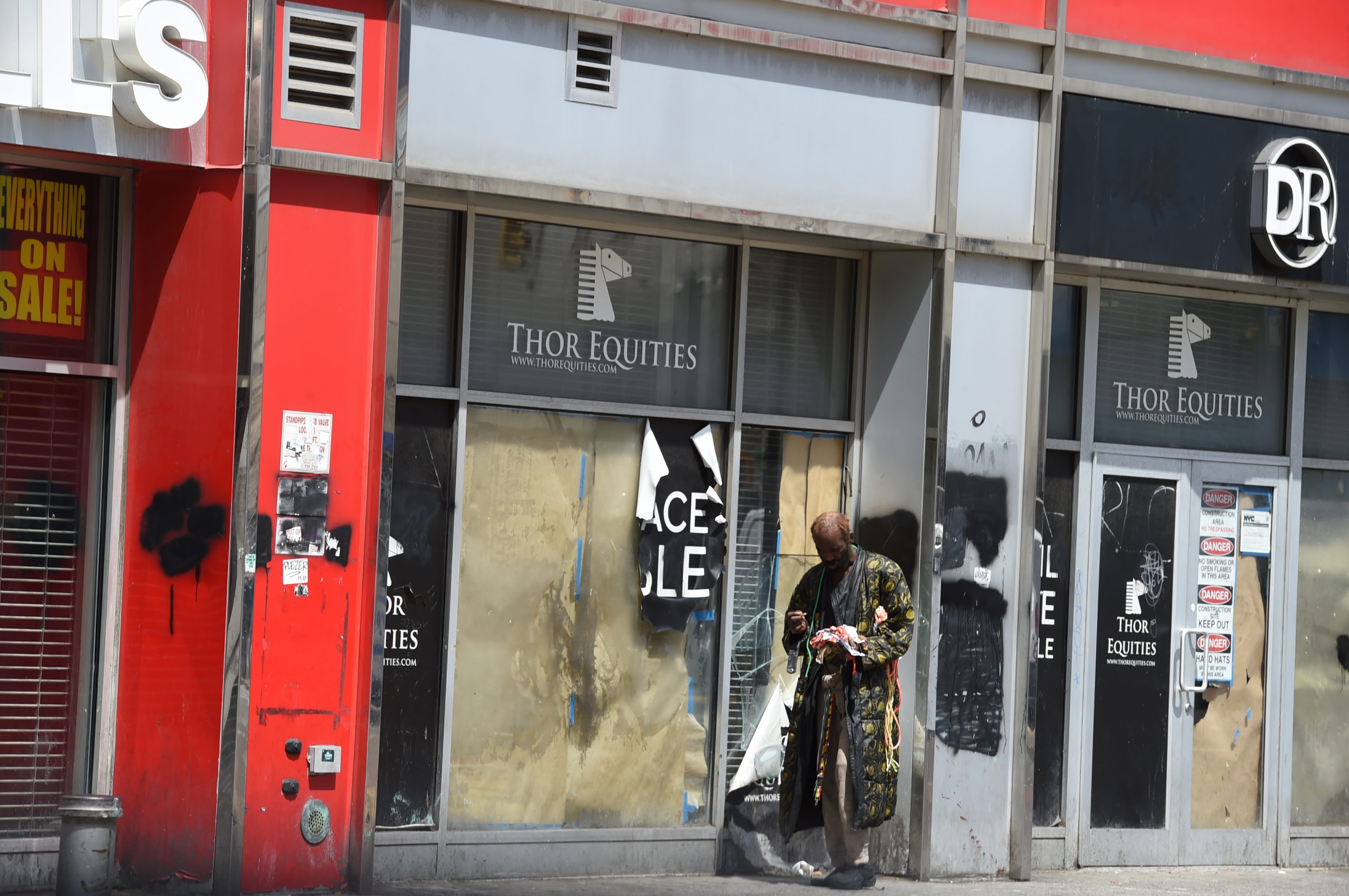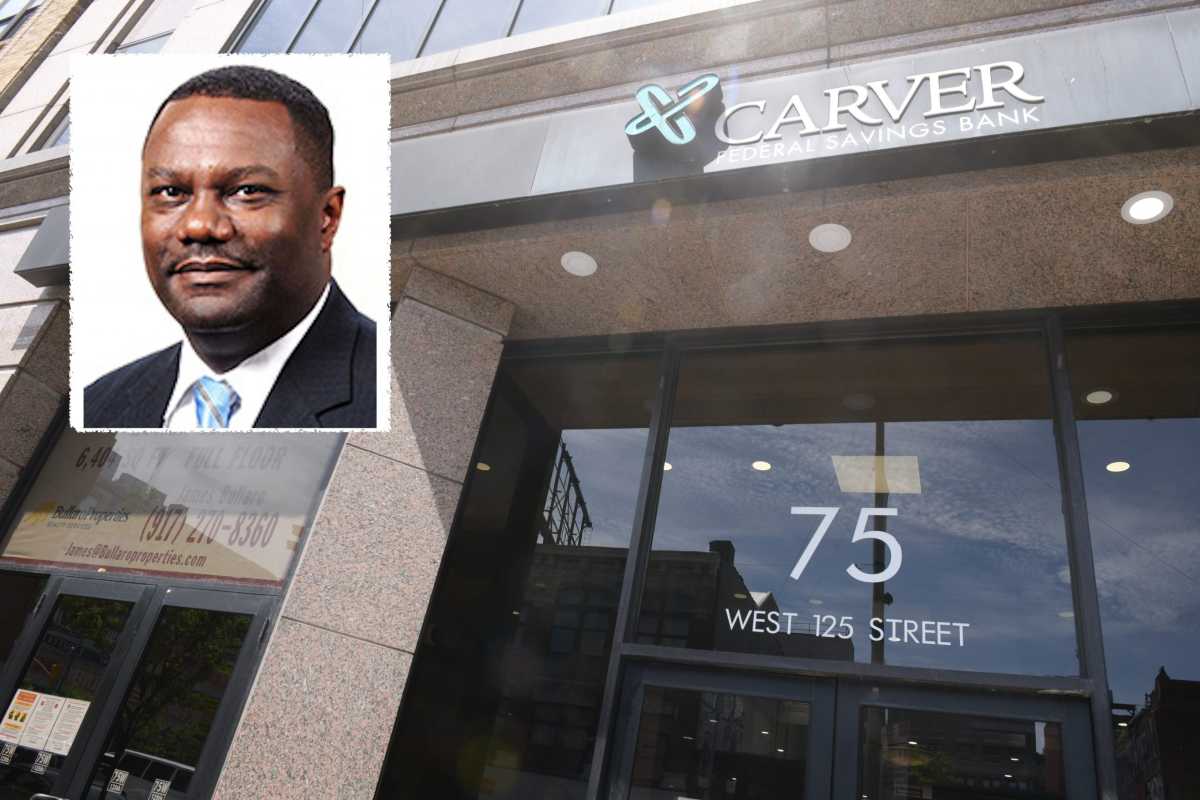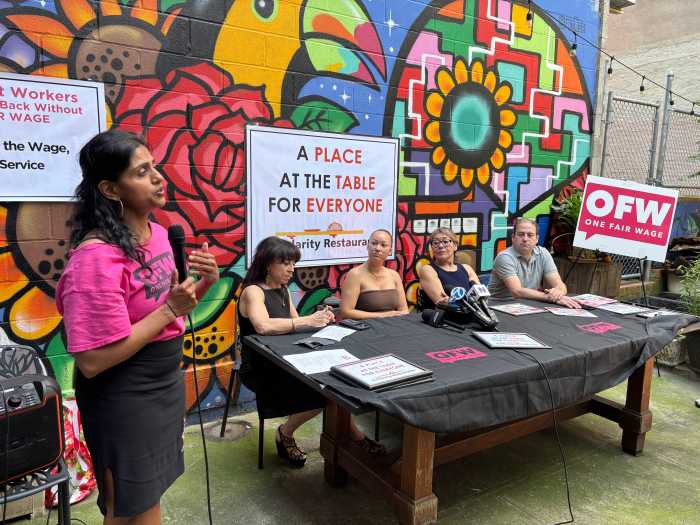For Harlem residents, the COVID-19 pandemic has been much more than just suffering and death of residents. The local economy has also been devastated.
Most stores on the main 125th Street shopping strip have been closed for months now, and additional storefronts are fading into oblivion. Community officials expect to lose up to 40% of retail businesses in Harlem.
The departure of major retailers such as Modell’s Sporting Goods, which filed for bankruptcy and closed all of its stores, have left gaping holes along the 125th Street corridor.
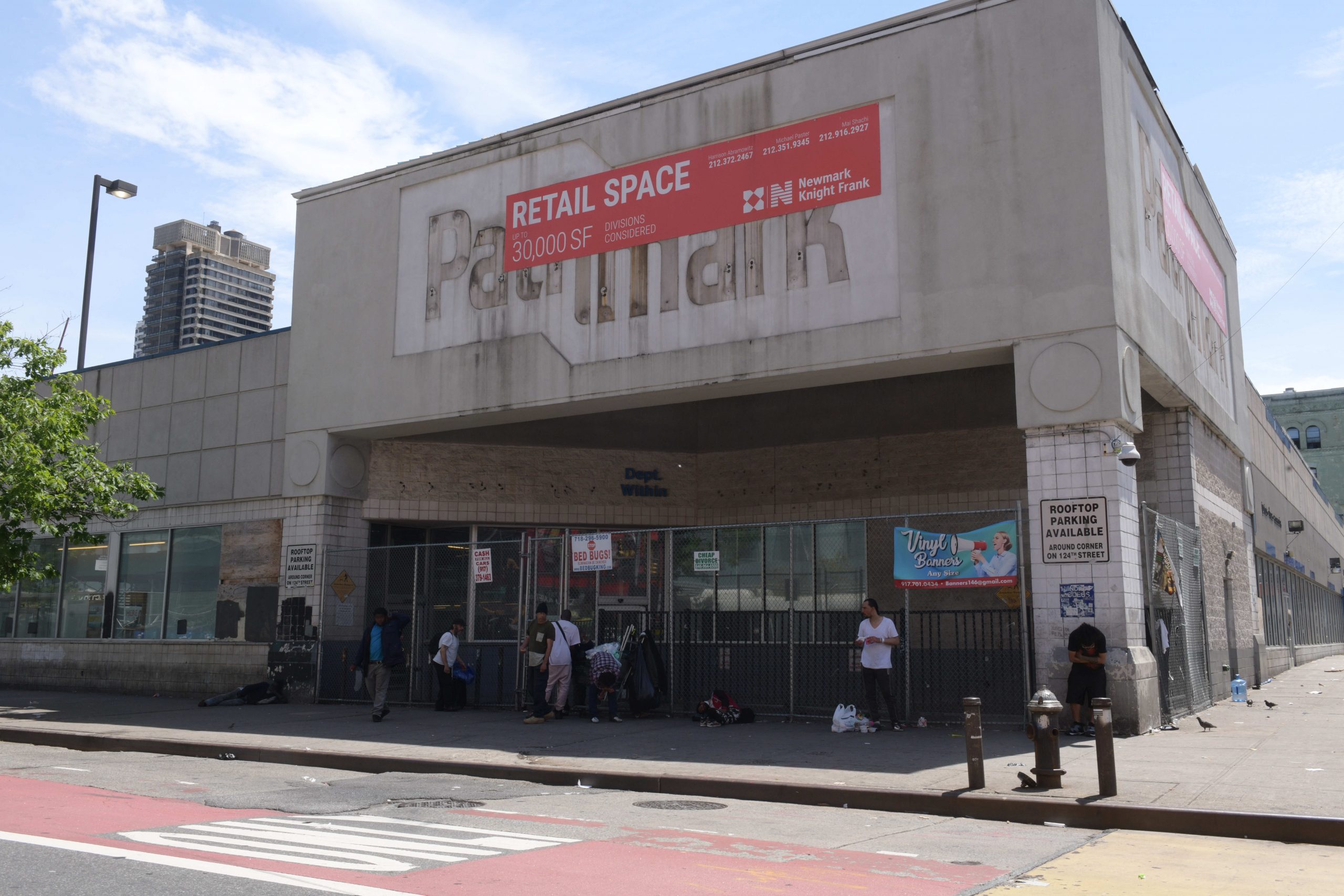
Vagrancy appears to be on the rise. People have been spotted sleeping on the streets and in bus shelters. Some are believed to suffer from alcohol or drug abuse.
But leaders in that community are not throwing their hands up in surrender.
Michael Pugh, president and CEO of Carver Bank since 2015, said he’s looking for those businesses that will survive. The financial institution is ready to help in the form of stimulus money and education on how to pivot a business to thrive even through challenging times.
Pugh brings more than 20 years of banking experience to Harlem through Carver, founded in 1948 to serve African-American communities whose residents, businesses, and institutions had limited access to mainstream financial services. Its prime mission is to promote economic development and revitalize underserved communities as the largest African- and Caribbean-American managed bank in the United States.
Carver has nine full-service branches in the New York City – including a large branch on 125th Street.
Pugh stated he’s dedicated to saving businesses from failing and promoting employment in the community, but he admitted that some businesses may not survive because they are not nimble enough to weather this economic storm.
“Businesses are struggling for liquidity to remain in operation and emerge on the other side of pandemic, but many of them at risk not able to reopen,” Pugh said. “The other side of the pandemic is a paradigm shift. A number of small businesses can’t fully build out digital and online functions where e-commerce is critical. A lot of small businesses do not have a lot of capital, so it’s hard to make major investment in e-commerce at this time. This is the challenge for small business to figure out how to reshape their operations model t0 get out the other side of the crisis.”
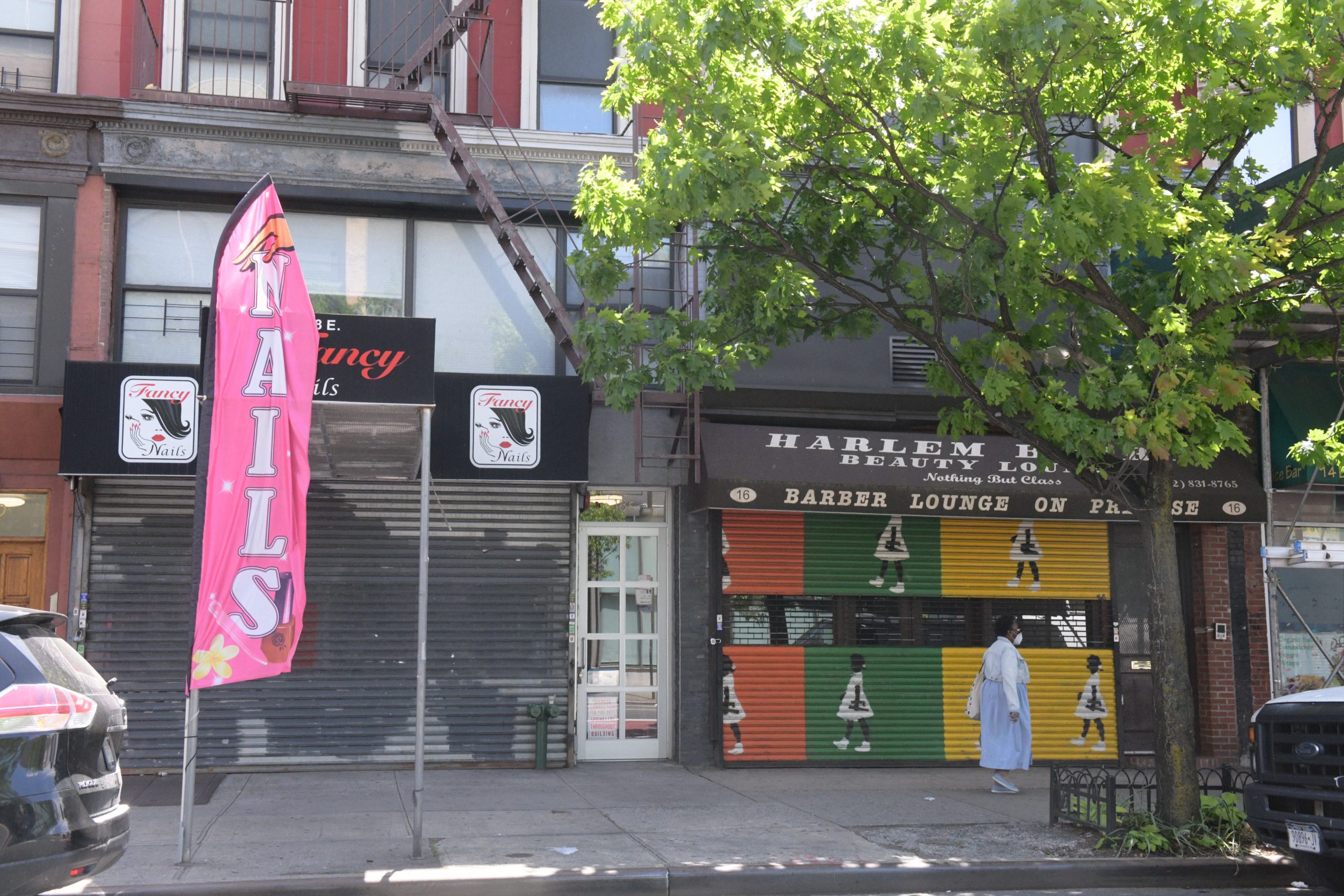
Pugh said those businesses that have been closed for more than two months will have a hard time emerging if they have not had any income. Many businesses have accumulated a level of debt, unpaid rent and overhead that “makes it difficult to recover.”
The problem, he observed, is not just tied to Harlem — but to other communities across the country.
“While I’m not an economist, I think over the next several months, the economy will be sluggish and small businesses with less than 75 employees will face challenges tied to their ability to gain cash flow after being closed for so long,” he said.
Already, many storefronts in Harlem have been shuttered due to COVID-19, with the recent fire at a major clothing store that damaged several others is not helping matters. Couple that with significant unemployment in the African-American and Latino communities, and the issue becomes more acute.
While the first federal stimulus package left out many local businesses, the new package is now being doled out to help retails to survive. In addition, businesses are receiving Payroll Protection Program funds (PPP), to maintain employees during the crisis. Because Carver is designated a Treasury Community Development Financial Institution, it means money must be re-invested in the communities they serve.
So Pugh is providing grants, partnerships, technical assistance through financial education. He is teaching business owners how to access capital and obtain loans and he is “spending time with small business and we are proud of that contribution.”
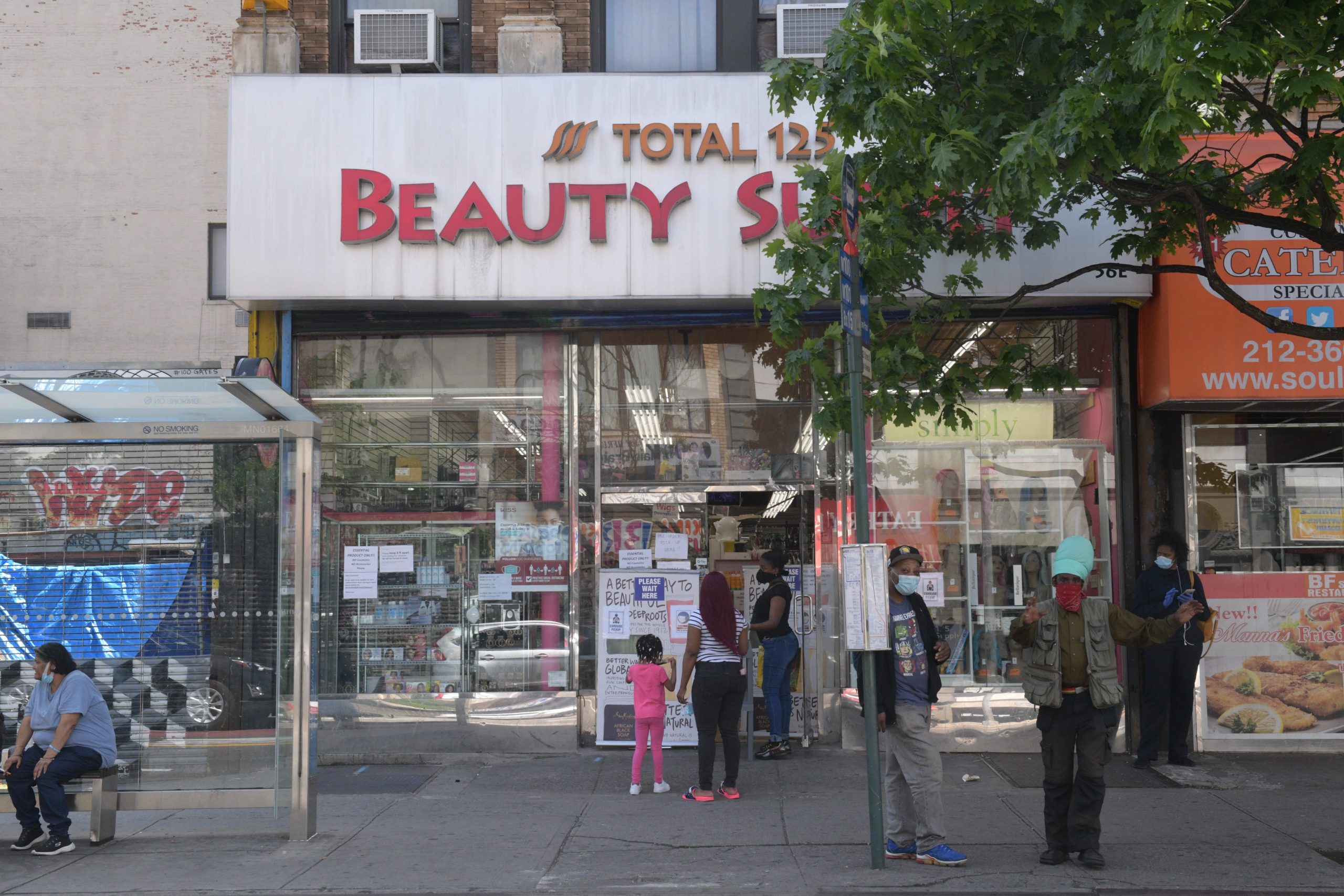
He says the current PPP is now reaching more businesses that hadn’t been included in the first round. Pugh is working closely with businesses to help them apply for the programs that will save them from disaster.
The bank is now working closely also with the Greater Jamaica Development Corporation in Queens, the Upper Manhattan Empowerment Zone and the Brooklyn Navy Yard to provide help to local businesses.
“We have processed and approved 120 loans for nearly $30 million so far, and frankly, other loans are now under review in the next few days and we are working to get them approved and processed,” Pugh said.
The bank programs are providing partnerships with businesses, teaching them skills to operate even under these conditions.
“What we will need is partnerships to provide technical assistance such as how to build effective web sites, how to launch e-commerce so that people can buy services and products so if we have a business owner with a great concept, we want to help them to get it to scale, and that’s a real challenge,” said Pugh, noting that they are working with Columbia University on small business assistance. “We want to help business truly flesh business plans and develop platforms for better scale.”
What also helps is that Small Business Administration loans don’t require conventional underwriting so a businesses credit is not considered the same way a bank would normally view it. The loans go mainly towards operating expenses and preserving staff so the loan program give the bank “more flexibility.” He says the government has been “more responsive to business with the stimulus, whereas during the Great Recession from 2007 t0 2009, there was no such bailouts.”
“We didn’t have these kinds of initiatives so there was a more significant shock to the stock market, housing market – so it was a different time,” Pugh said. “The current stimulus gives more flexibility and is different from typical underwriting where a borrower might not have been in a position to qualify for additional loans.”
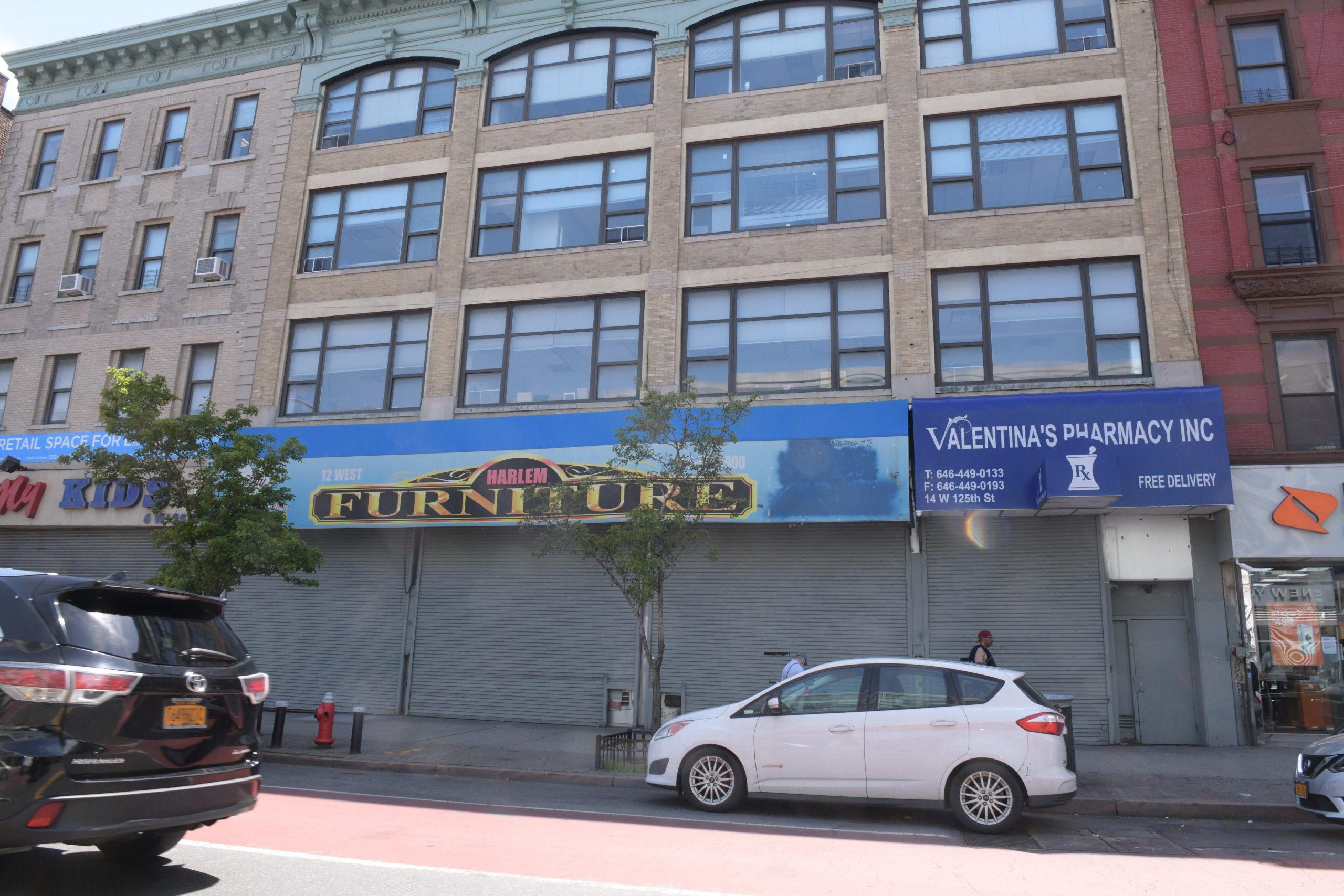
He realizes small businesses are the backbone of any community, but it will be innovation by those businesses that will help them survive. But it has been the minority communities that have suffered most in this crisis.
“I think it is interesting the reports that indicate that minority businesses are experiencing greater risk in this crisis and we are also seeing sizable unemployment in terms of women impacted in workplace with furloughs tied to COVID-19,” Pugh noted. “African American households are facing loss of wealth, jobs and this is a real issue in the aftermath of the pandemic.”
He continued, “If we had solutions wrapped up, we would all be much happier – but it will be bit of a journey. The first step is to get the city fully reopened and then assess the real damage.”
But in the end, Pugh understands, “some of those businesses will just close and go away.”
